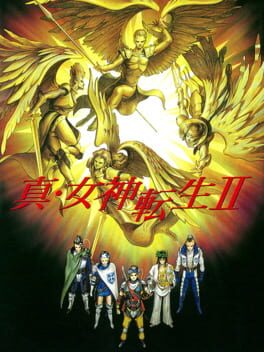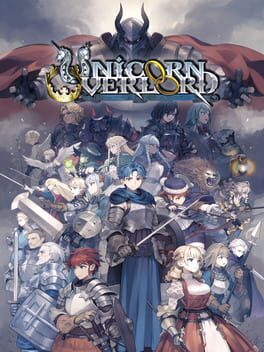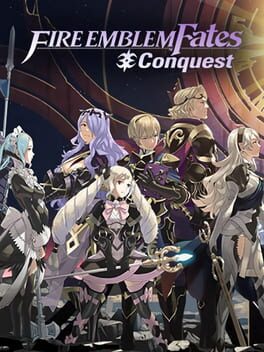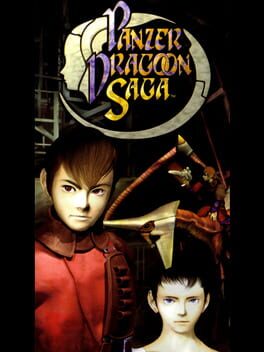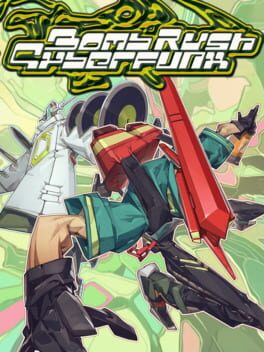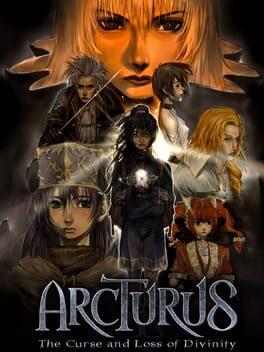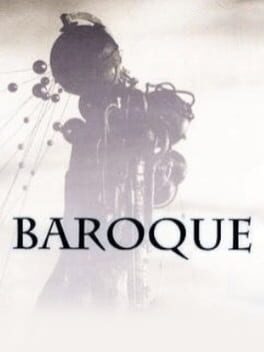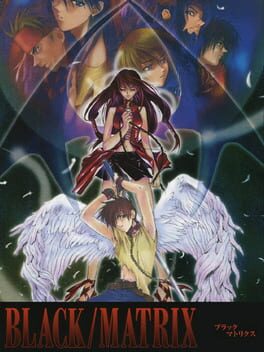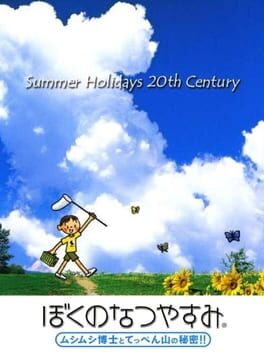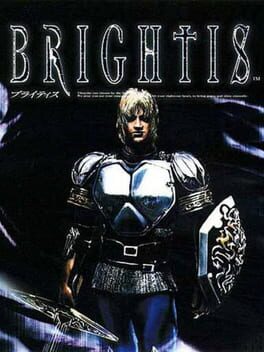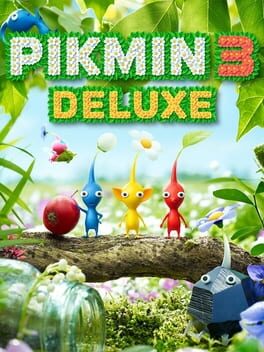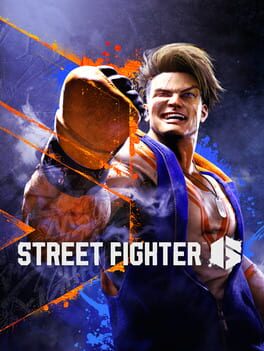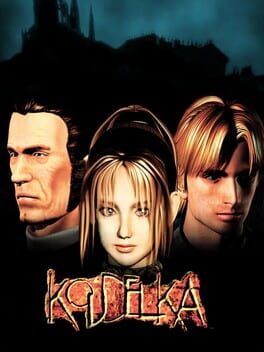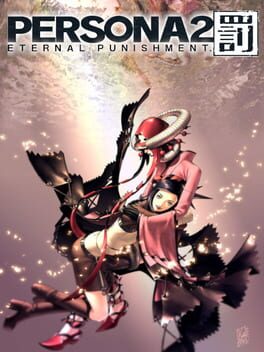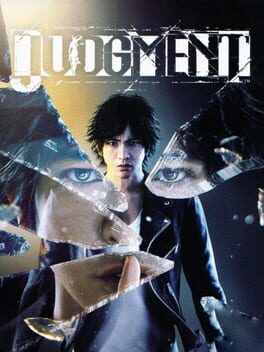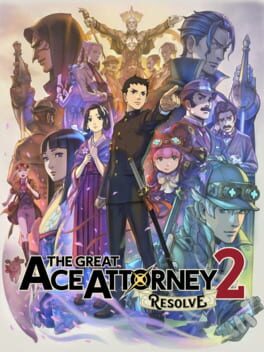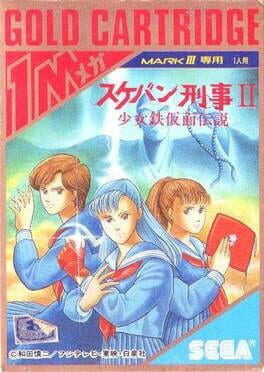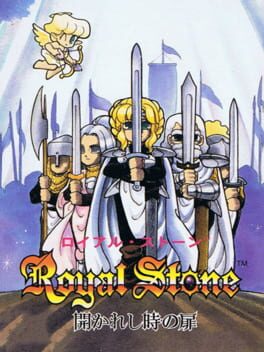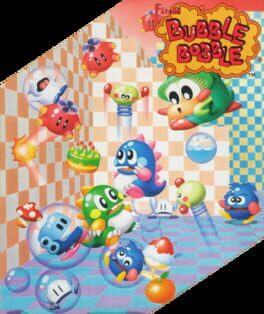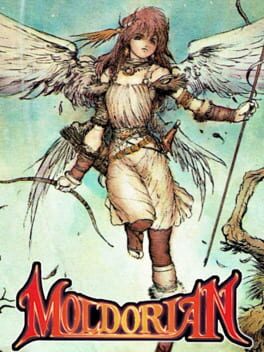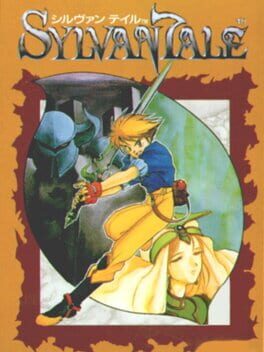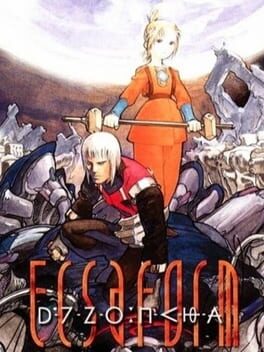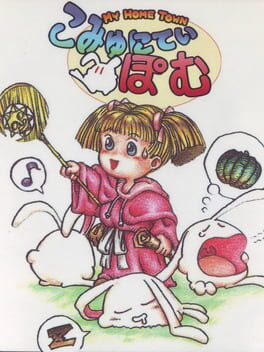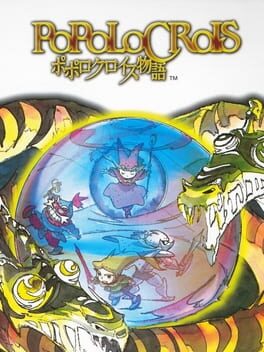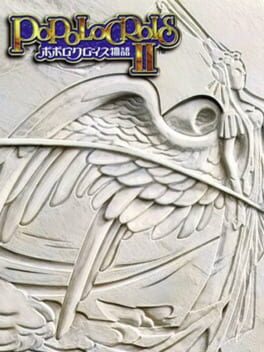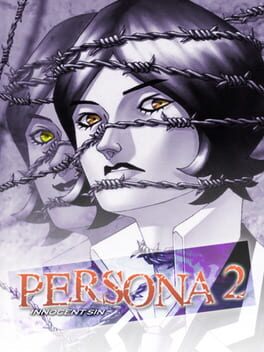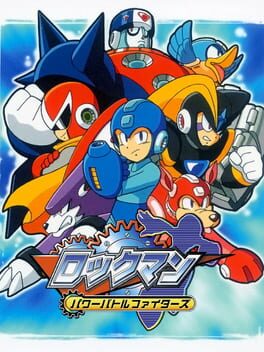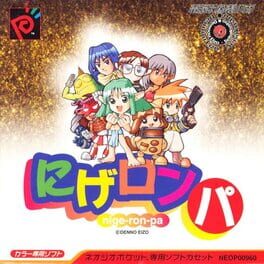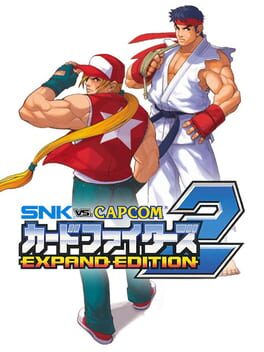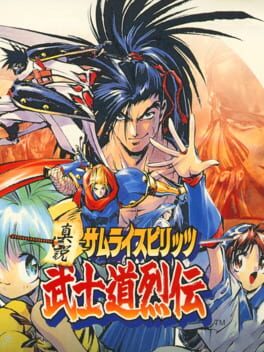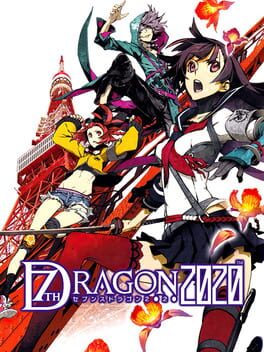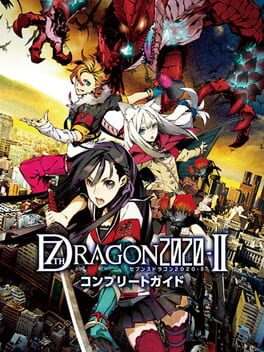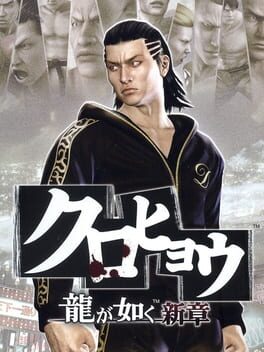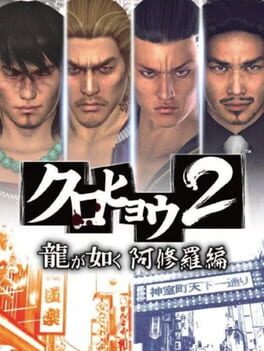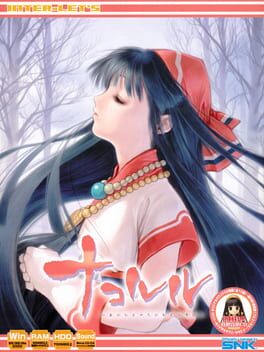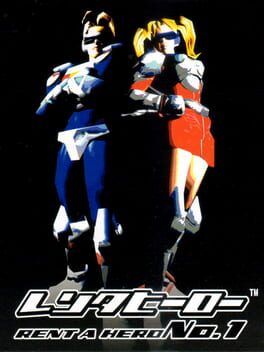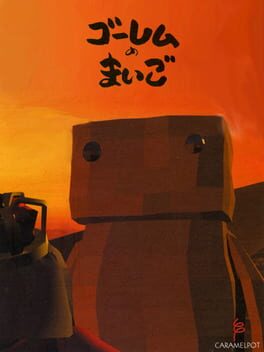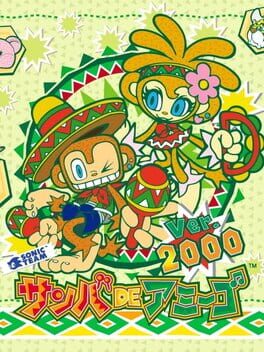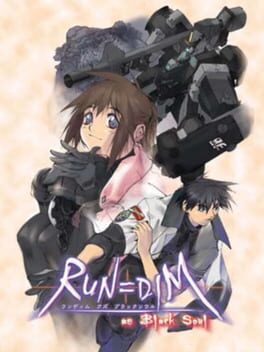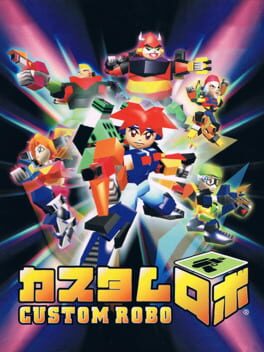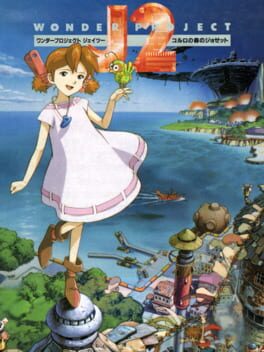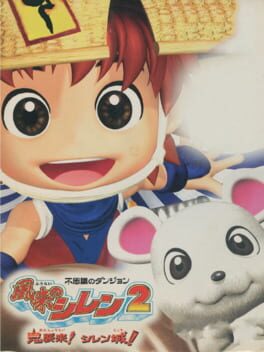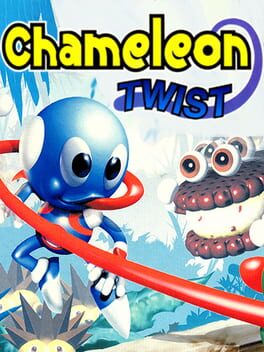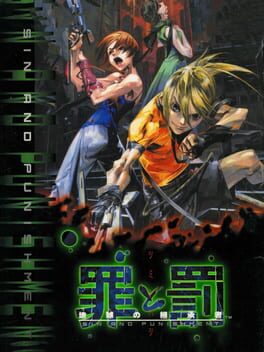dalt
BACKER
29 reviews liked by dalt
SMT2 is atypical from most JRPGs in more ways than you would expect. Eschewing a traditional adventure with towns along the way is nothing necessarily new, but the way SMT2 focuses on such a sprawling but interconnected region feels pretty forward thinking. There's obvious inspiration from Western RPGs, but it also evokes Dark Souls or FF12 with its commitment to an immersive world.
There's no doubt that the world itself is incredibly interesting and creative in a lot of ways, much more so than SMT1. From the unique flavor text to the striking aesthetics of each area, Kaneko's creativity really bleeds through constantly. It makes for probably the best aspect of the exploration.
However the exploration itself often ends up as a tedious and extremely frustrating task. I mentioned Dark Souls as an example of an immersive world that SMT2 reminds me of, but Dark Souls both commits to making you move from place to place on foot and has interesting gameplay. SMT2's gameplay is, well, terrible. It's pretty much brainless levels of easy for most of the game but with a ridiculous amount of encounters. I sort of knew this would be the case going in, but even if I was able to get past the combat itself the overall design feels made to waste time to insane degrees. Most of the games runtime is made up of fetch quests which drag you around every corner of the map. I understand wanting you to explore the map, but so much of the game being inane backtracking for little gameplay or story reward gets extremely frustrating.
Unfortunately, this detracts a lot from the story a lot of the time for me as well. This is by far the aspect of the game I've seen praised the most, and I think there is good reason for this. Not only does it have a much more interesting setting than SMT1, it also has a much more interesting alignment system that feels less wishy-washy about what it's trying to say. But the structure hurts it greatly still, as the story is only interesting until it suddenly isn't again. For every long expository dialogue scene there's another 10 hours of wandering around doing random tasks afterwards with little story impact. Aleph is a cool idea for a protagonist, with a really neat twist, but it's also undermined by the fact that there's little to no interactions that build up to the twist or follow up on it. For every interesting plot point I know it will be followed by "Find the 8 Idols of shitfuck to unlock the gate" I got the Law ending and it was interesting and neat but also felt detached from the rest of the game as well, mostly functioning off a cool aesthetic. I think the story had a big chance to make up for the rest of the game for me but I came away from it with little attachment.
I might be giving SMT2 a more positive score than how it actually felt to play but I can see the appeal to such a unique game. There's a really striking creative voice behind a lot of it that even SMT1 didn't really have. I just wish it could have all come together for me to be able to see it as a masterpiece at all.
There's no doubt that the world itself is incredibly interesting and creative in a lot of ways, much more so than SMT1. From the unique flavor text to the striking aesthetics of each area, Kaneko's creativity really bleeds through constantly. It makes for probably the best aspect of the exploration.
However the exploration itself often ends up as a tedious and extremely frustrating task. I mentioned Dark Souls as an example of an immersive world that SMT2 reminds me of, but Dark Souls both commits to making you move from place to place on foot and has interesting gameplay. SMT2's gameplay is, well, terrible. It's pretty much brainless levels of easy for most of the game but with a ridiculous amount of encounters. I sort of knew this would be the case going in, but even if I was able to get past the combat itself the overall design feels made to waste time to insane degrees. Most of the games runtime is made up of fetch quests which drag you around every corner of the map. I understand wanting you to explore the map, but so much of the game being inane backtracking for little gameplay or story reward gets extremely frustrating.
Unfortunately, this detracts a lot from the story a lot of the time for me as well. This is by far the aspect of the game I've seen praised the most, and I think there is good reason for this. Not only does it have a much more interesting setting than SMT1, it also has a much more interesting alignment system that feels less wishy-washy about what it's trying to say. But the structure hurts it greatly still, as the story is only interesting until it suddenly isn't again. For every long expository dialogue scene there's another 10 hours of wandering around doing random tasks afterwards with little story impact. Aleph is a cool idea for a protagonist, with a really neat twist, but it's also undermined by the fact that there's little to no interactions that build up to the twist or follow up on it. For every interesting plot point I know it will be followed by "Find the 8 Idols of shitfuck to unlock the gate" I got the Law ending and it was interesting and neat but also felt detached from the rest of the game as well, mostly functioning off a cool aesthetic. I think the story had a big chance to make up for the rest of the game for me but I came away from it with little attachment.
I might be giving SMT2 a more positive score than how it actually felt to play but I can see the appeal to such a unique game. There's a really striking creative voice behind a lot of it that even SMT1 didn't really have. I just wish it could have all come together for me to be able to see it as a masterpiece at all.
Unicorn Overlord
2024
"A Rebirth Of Tactical RPGs"
I can't confess to having played Ogre Battle, the series which Unicorn Overlord has been compared to the most, however I've played enough Fire Emblem to appreciate the goals it set out for. This phrase, which was all over the marketing, touts it as a "rebirth", which implies that it will lean the most on being a throwback. If anything however, it's the fusion of old and new here that makes Unicorn Overlord work so well.
If we never get a Genealogy of the Holy War remake, I can at least relish in the fact that we got another game where a blue hair prince on a horse is fighting battles on maps that are 1:1 to the world map. Vanillaware considered this game their biggest undertaking yet, and it shows in how impressive the scale of it is. Each battle is elevated both by the sense of immersion that fighting on chunks of the overworld brings, and it's also a satisfying 60 hours or so of seeing more and more territory reclaimed. It also extends even further than Genealogy by letting you actually spend time in the world you are fighting through. The town rebuilding may not be the most mechanically satisfying, but it is also integrated well enough into just normal exploration that its never a nuisance. Alongside the other overworld sidequests, it helps to add enough texture to the world to make reclaiming it feel rewarding.
Of course it takes plenty of elements to make a great strategy game, and the great mechanical base that Unicorn Overlord has makes it worthwhile in it's own right. The unit system is an excellent way of forcing frequent optimization, paying careful attention to which pieces to mix and match. On top of this, the sheer variety of classes that keeps being introduced until the end keeps this process going strong. For even more depth, the Tactics system is a fantastic turn on the automated battles that most SRPGs have. A FF12 gambit system-styled form of programming provides a lot of room to further fine tune every aspect of the combat. In a lot of ways, this works well with the enemy design to elevate the somewhat basic map design, however the maps are still probably the biggest flaw. There are some interesting wrenches thrown in here or there, like a fog of war chapter or ones with strict time limits, but it feels too afraid to commit fully. A common sentiment I have seen is that this game is too easy, which is true, but Vanillaware's goal being accessibility is fine enough. Yet I still wish they were more willing to make players feel uncomfortable, which I think Fire Emblem succeeds at while also being fairly accessible. It's never easy to demand more content, especially in a game like this, but I wish they went further with what they DO have.
Speaking of a common sentiment, the majority of criticism has focused on the games story. It's fair for people to call it "generic" but it's also somewhat misguided to me. While I also rolled my eyes at first seeing the Tolkien-esque setting and the deposed prince premise, I don't think this is entirely an issue. While many of the elements of the world are trope-y, the countless smaller stories within them give them a unique flavor, particularly for the individual characters. In taking influence from Fire Emblem, Vanillaware must have wisely noted how invested people are in the characters in these games. Thus the rapport system serves as a valuable way to add more story where needed while also never being intrusive on the core experience. I would say it even surpasses FE supports in a way with how much it lets you pick and choose with what you want to do, and the sheer scope of interactions you can have is impressive.
Yet simultaneously that scope is what leads into my actual issues with the story. It's impressive to have 5 distinct regions with their own cultures and histories, yet we don't get nearly enough insight as we should. Being generic isn't an issue, there's genuinely interesting ideas being hinted at in each region yet it's hard to really get invested in them. Even though the game is 60 hours, if you split that up into 5 it doesn't leave much room for each area to shine as much as it could. Part of that is because so much of it is core gameplay, yet I would trade maybe a couple filler missions for some more narrative depth. Simultaneously this would make up for the main story with Alain being not that great, but it makes it come off a little worse instead. It feels like he lacks agency a lot of the time and has to take a backseat to these situations which would be fine if they had gotten more depth. There are some choices in the game, but they feel like pretty obvious ones most of the time. I respect the width it guns for, but its easy to see why it ended up unsatisfying.
Of course it's worth putting all of this in perspective too. This game took just under a decade to develop and Vanillaware ran out of money. 13 Sentinels also had a long and arduous development concurrently, with most of the focus being on the story. This isn't to say that Unicorn Overlord is made better by knowing this, but it would be also unfair to say the ambitions were misplaced ultimately.
I can't confess to having played Ogre Battle, the series which Unicorn Overlord has been compared to the most, however I've played enough Fire Emblem to appreciate the goals it set out for. This phrase, which was all over the marketing, touts it as a "rebirth", which implies that it will lean the most on being a throwback. If anything however, it's the fusion of old and new here that makes Unicorn Overlord work so well.
If we never get a Genealogy of the Holy War remake, I can at least relish in the fact that we got another game where a blue hair prince on a horse is fighting battles on maps that are 1:1 to the world map. Vanillaware considered this game their biggest undertaking yet, and it shows in how impressive the scale of it is. Each battle is elevated both by the sense of immersion that fighting on chunks of the overworld brings, and it's also a satisfying 60 hours or so of seeing more and more territory reclaimed. It also extends even further than Genealogy by letting you actually spend time in the world you are fighting through. The town rebuilding may not be the most mechanically satisfying, but it is also integrated well enough into just normal exploration that its never a nuisance. Alongside the other overworld sidequests, it helps to add enough texture to the world to make reclaiming it feel rewarding.
Of course it takes plenty of elements to make a great strategy game, and the great mechanical base that Unicorn Overlord has makes it worthwhile in it's own right. The unit system is an excellent way of forcing frequent optimization, paying careful attention to which pieces to mix and match. On top of this, the sheer variety of classes that keeps being introduced until the end keeps this process going strong. For even more depth, the Tactics system is a fantastic turn on the automated battles that most SRPGs have. A FF12 gambit system-styled form of programming provides a lot of room to further fine tune every aspect of the combat. In a lot of ways, this works well with the enemy design to elevate the somewhat basic map design, however the maps are still probably the biggest flaw. There are some interesting wrenches thrown in here or there, like a fog of war chapter or ones with strict time limits, but it feels too afraid to commit fully. A common sentiment I have seen is that this game is too easy, which is true, but Vanillaware's goal being accessibility is fine enough. Yet I still wish they were more willing to make players feel uncomfortable, which I think Fire Emblem succeeds at while also being fairly accessible. It's never easy to demand more content, especially in a game like this, but I wish they went further with what they DO have.
Speaking of a common sentiment, the majority of criticism has focused on the games story. It's fair for people to call it "generic" but it's also somewhat misguided to me. While I also rolled my eyes at first seeing the Tolkien-esque setting and the deposed prince premise, I don't think this is entirely an issue. While many of the elements of the world are trope-y, the countless smaller stories within them give them a unique flavor, particularly for the individual characters. In taking influence from Fire Emblem, Vanillaware must have wisely noted how invested people are in the characters in these games. Thus the rapport system serves as a valuable way to add more story where needed while also never being intrusive on the core experience. I would say it even surpasses FE supports in a way with how much it lets you pick and choose with what you want to do, and the sheer scope of interactions you can have is impressive.
Yet simultaneously that scope is what leads into my actual issues with the story. It's impressive to have 5 distinct regions with their own cultures and histories, yet we don't get nearly enough insight as we should. Being generic isn't an issue, there's genuinely interesting ideas being hinted at in each region yet it's hard to really get invested in them. Even though the game is 60 hours, if you split that up into 5 it doesn't leave much room for each area to shine as much as it could. Part of that is because so much of it is core gameplay, yet I would trade maybe a couple filler missions for some more narrative depth. Simultaneously this would make up for the main story with Alain being not that great, but it makes it come off a little worse instead. It feels like he lacks agency a lot of the time and has to take a backseat to these situations which would be fine if they had gotten more depth. There are some choices in the game, but they feel like pretty obvious ones most of the time. I respect the width it guns for, but its easy to see why it ended up unsatisfying.
Of course it's worth putting all of this in perspective too. This game took just under a decade to develop and Vanillaware ran out of money. 13 Sentinels also had a long and arduous development concurrently, with most of the focus being on the story. This isn't to say that Unicorn Overlord is made better by knowing this, but it would be also unfair to say the ambitions were misplaced ultimately.
I would hesitate to call the story of Conquest functional. Every character is one-dimensional or a complete moron, the way they respond to plot events tends to make very little sense, and the entire conceit is wasted with shallow writing that's so incongruent with what you're doing in the gameplay that it's honestly hard for me to believe this got published as-is. It's truly baffling in every respect.
Despite this the actual gameplay is really well done. I've previously only ever played the GBA Fire Emblem games (and Echoes but I never finished it) so all the new mechanics were overwhelming at first, but rewarding to gain a deeper understanding of as I played. The different pair-up stances add much more immediate depth to even the simplest of skirmishes, especially when trying to align specific units together to build support. This game provides various methods of reclassing, giving you abundant freedom to customize units as you see fit based on many different parameters, which become even more layered as you take into account what skills and classes to pass down onto a child unit and how you want them to grow. It's so much to play around with and provides a near-infinite amount of options for repeat playthroughs. I was skeptical of the changes to weapon durability at first, and while I feel certain aspects are a bit overtuned (basically no reason to ever use a Silver weapon), it clicked when I started seeing them more as aspects of a unit's build as opposed to resources to be passed around and used up like in previous games. I do also enjoy the addition of hidden weapons and the consolidation of magic into one category for the sake of weapon triangle simplicity, as I always felt light and dark magic were too underdeveloped compared to anima for it to stand as any kind of equal balance.
The maps are also a major highlight, as they tend to utilize gimmicks that make battles clever and interesting without coming off as too obtrusive (for the most part, the fox illusion one is pretty bad). The Dragon Veins that facilitate many of these gimmicks add even further strategic elements to each map, as choosing when and how to activate them for best increasing your advantage while hampering the enemy adds a unique flair to every fight that never feels too far removed from the core gameplay experience. The design in both a gameplay and aesthetic sense is astounding, with a variety of different environments being employed in tandem with their respective gimmick that create a wide assortment of unique and memorable gameplay experiences. I don't think I've played another Fire Emblem game where I can immediately recall so many maps from memory after only one playthrough.
As boring as it may be I ultimately agree with the consensus regarding Conquest. I plan to play it again on a harder difficulty at a later date, using what I've learned to be much more optimal and plan out more diverse builds for each unit, but even for a particularly vanilla playthrough I still had a good time with the game. Just not when any characters were talking.
Despite this the actual gameplay is really well done. I've previously only ever played the GBA Fire Emblem games (and Echoes but I never finished it) so all the new mechanics were overwhelming at first, but rewarding to gain a deeper understanding of as I played. The different pair-up stances add much more immediate depth to even the simplest of skirmishes, especially when trying to align specific units together to build support. This game provides various methods of reclassing, giving you abundant freedom to customize units as you see fit based on many different parameters, which become even more layered as you take into account what skills and classes to pass down onto a child unit and how you want them to grow. It's so much to play around with and provides a near-infinite amount of options for repeat playthroughs. I was skeptical of the changes to weapon durability at first, and while I feel certain aspects are a bit overtuned (basically no reason to ever use a Silver weapon), it clicked when I started seeing them more as aspects of a unit's build as opposed to resources to be passed around and used up like in previous games. I do also enjoy the addition of hidden weapons and the consolidation of magic into one category for the sake of weapon triangle simplicity, as I always felt light and dark magic were too underdeveloped compared to anima for it to stand as any kind of equal balance.
The maps are also a major highlight, as they tend to utilize gimmicks that make battles clever and interesting without coming off as too obtrusive (for the most part, the fox illusion one is pretty bad). The Dragon Veins that facilitate many of these gimmicks add even further strategic elements to each map, as choosing when and how to activate them for best increasing your advantage while hampering the enemy adds a unique flair to every fight that never feels too far removed from the core gameplay experience. The design in both a gameplay and aesthetic sense is astounding, with a variety of different environments being employed in tandem with their respective gimmick that create a wide assortment of unique and memorable gameplay experiences. I don't think I've played another Fire Emblem game where I can immediately recall so many maps from memory after only one playthrough.
As boring as it may be I ultimately agree with the consensus regarding Conquest. I plan to play it again on a harder difficulty at a later date, using what I've learned to be much more optimal and plan out more diverse builds for each unit, but even for a particularly vanilla playthrough I still had a good time with the game. Just not when any characters were talking.
Final Fantasy XIII
2009
The Hanging Edge
The name shared by both the first area and its accompanying background music in FFXIII immediately transmit the sense of tension and exhilaration that both of them contain. As you gain control of Lightning, the area around you is chaotic, crawling with enemies, rife with conflict. The slightly panicked piano pops into your ears, compelling you to start to move forward. Yet then it is also a sweeping strings section that bursts in as well, conveying the scale of everything happening around you. It makes you want to soak in the stunning environment, the excitement of your surroundings. But there is only one way forward, and the only option left is to run.
It wouldn't be true to say that XIII is defined by freneticism necessarily, but it is such a striking element that it bears mentioning nonetheless. That first level sets a tone that doesn't let up for quite some time, one that deserves immense credit for how committed they were to it. The paths only have one way to go because it's the only way the characters CAN go. They are hunted by what feels like the entire world around them, while pitted against the ticking time bomb they've been stuck with, and still not even able to keep from fighting with each other. Needless to say, the design directly serves the story by adding that tension for them to spin great character moments out of. This is a group of people struggling against circumstance, compelled to keep moving forward when they don't really have a direction. Splitting the party up works great for this, as it allows for Lightning/Hope and Sazh/Vanille to play off of each other and simultaneously get strong character development. These sections work so well because of how focused they are, but the resolution is equally as satisfying too.
The thrilling nature of the story plays very well into the design of the combat system as well, contributing to the consistent sense of energy that the game has. The original ATB system was inspired by Formula One races, yet this system is the first time that dream feels fully realized. The segmented ATB bar gives that sense of actual speed, making it rewarding to act as quickly as possible. It also rewards attentiveness, as even with just auto-attack the timing of your actions is important. Strategy is more important than ever as well, due to Paradigms allowing for mid-battle adaptability. The stagger bar is a great mini-time limit that incentivizes all of these things. It all works quite excellently, and while it takes some time to fully unfurl it is easily one of the best battle systems in the franchise. If anything, I wish it could have been taking advantage of even more. The menus could be even snappier, the time between switching paradigms even faster, and even enemies with more emphasis placed on countering player inattentiveness.
I mentioned before that the fast-paced style of the game isn't the only one it has, and the marked shift it undergoes later is interesting in a lot of ways. There's an inherent satisfaction in stepping into a vast open area after hours of being essentially trapped, a really well done contrast that shows just how foreign Pulse is compared to Cocoon. However, it also feels disappointingly compromised in a lot of ways. A side mission based structure is a fun idea, but it mostly functions as a way to still lead you from point A to B rather than giving a real sense of exploration. Having a lot of enemies that are meant to be avoided is a neat idea for an area consumed by nature, but it also feels at odds with how enjoyable the freedom of the combat is. It also just feels unnecessarily trial-and-error heavy, which just feels like wasting time. Of course the dungeons at the end of this area are quite strong, but it still feels like it missed on the potential at hand and just went back to what works.
This is just one chapter though ultimately, so it's hard to say it ruins the game. One aspect that it does show that I found to be much more detrimental, however, is that the story starts to crack pretty hard around this point. The story thrives off character moments for most of its run time, but it feels somewhat aimless once it moves past that. Of course, this isn't to say it's bad or anything. Oerba is a particularly impactful moment, letting a long lost town just completely speak for itself for the most part is an excellent contrast to the excess of Cocoon. Outside of this though, the story fails to entirely deliver on the promise it makes. We know that Cocoon has elements of a police state, that people like Cid resist it, and that its citizens support its crimes, yet it never feels like we get solid resolutions to these aspects of the world. I don't think answering all of these necessarily makes for a great story, however I don't think pinning them all on the influence of a Fal'cie does either. The main villain has plans that are greater than we know, but that also makes it hard to get attached to the main characters fight against him. The idea that defying fate is the only reason you need to fight is a good theme, yet I don't think that means it couldn't have been more as a whole.
Even if it falls short of being my favorite in such a stacked franchise, I want to reiterate that I think XIII still resonates quite well all around. It's hard to not be impressed by how bold this game is when it pays off in so many ways. I heard most of my life about what a disaster it is, and now it feels like that just speaks to what a tough time it was for JRPGs to get a fair shake. Rather than a fundamentally broken mess, it's a game that could have tapped into its potential even more. Yet what is there is still quite special in its own way, and for that I hope it manages to get more recognition some day.
The name shared by both the first area and its accompanying background music in FFXIII immediately transmit the sense of tension and exhilaration that both of them contain. As you gain control of Lightning, the area around you is chaotic, crawling with enemies, rife with conflict. The slightly panicked piano pops into your ears, compelling you to start to move forward. Yet then it is also a sweeping strings section that bursts in as well, conveying the scale of everything happening around you. It makes you want to soak in the stunning environment, the excitement of your surroundings. But there is only one way forward, and the only option left is to run.
It wouldn't be true to say that XIII is defined by freneticism necessarily, but it is such a striking element that it bears mentioning nonetheless. That first level sets a tone that doesn't let up for quite some time, one that deserves immense credit for how committed they were to it. The paths only have one way to go because it's the only way the characters CAN go. They are hunted by what feels like the entire world around them, while pitted against the ticking time bomb they've been stuck with, and still not even able to keep from fighting with each other. Needless to say, the design directly serves the story by adding that tension for them to spin great character moments out of. This is a group of people struggling against circumstance, compelled to keep moving forward when they don't really have a direction. Splitting the party up works great for this, as it allows for Lightning/Hope and Sazh/Vanille to play off of each other and simultaneously get strong character development. These sections work so well because of how focused they are, but the resolution is equally as satisfying too.
The thrilling nature of the story plays very well into the design of the combat system as well, contributing to the consistent sense of energy that the game has. The original ATB system was inspired by Formula One races, yet this system is the first time that dream feels fully realized. The segmented ATB bar gives that sense of actual speed, making it rewarding to act as quickly as possible. It also rewards attentiveness, as even with just auto-attack the timing of your actions is important. Strategy is more important than ever as well, due to Paradigms allowing for mid-battle adaptability. The stagger bar is a great mini-time limit that incentivizes all of these things. It all works quite excellently, and while it takes some time to fully unfurl it is easily one of the best battle systems in the franchise. If anything, I wish it could have been taking advantage of even more. The menus could be even snappier, the time between switching paradigms even faster, and even enemies with more emphasis placed on countering player inattentiveness.
I mentioned before that the fast-paced style of the game isn't the only one it has, and the marked shift it undergoes later is interesting in a lot of ways. There's an inherent satisfaction in stepping into a vast open area after hours of being essentially trapped, a really well done contrast that shows just how foreign Pulse is compared to Cocoon. However, it also feels disappointingly compromised in a lot of ways. A side mission based structure is a fun idea, but it mostly functions as a way to still lead you from point A to B rather than giving a real sense of exploration. Having a lot of enemies that are meant to be avoided is a neat idea for an area consumed by nature, but it also feels at odds with how enjoyable the freedom of the combat is. It also just feels unnecessarily trial-and-error heavy, which just feels like wasting time. Of course the dungeons at the end of this area are quite strong, but it still feels like it missed on the potential at hand and just went back to what works.
This is just one chapter though ultimately, so it's hard to say it ruins the game. One aspect that it does show that I found to be much more detrimental, however, is that the story starts to crack pretty hard around this point. The story thrives off character moments for most of its run time, but it feels somewhat aimless once it moves past that. Of course, this isn't to say it's bad or anything. Oerba is a particularly impactful moment, letting a long lost town just completely speak for itself for the most part is an excellent contrast to the excess of Cocoon. Outside of this though, the story fails to entirely deliver on the promise it makes. We know that Cocoon has elements of a police state, that people like Cid resist it, and that its citizens support its crimes, yet it never feels like we get solid resolutions to these aspects of the world. I don't think answering all of these necessarily makes for a great story, however I don't think pinning them all on the influence of a Fal'cie does either. The main villain has plans that are greater than we know, but that also makes it hard to get attached to the main characters fight against him. The idea that defying fate is the only reason you need to fight is a good theme, yet I don't think that means it couldn't have been more as a whole.
Even if it falls short of being my favorite in such a stacked franchise, I want to reiterate that I think XIII still resonates quite well all around. It's hard to not be impressed by how bold this game is when it pays off in so many ways. I heard most of my life about what a disaster it is, and now it feels like that just speaks to what a tough time it was for JRPGs to get a fair shake. Rather than a fundamentally broken mess, it's a game that could have tapped into its potential even more. Yet what is there is still quite special in its own way, and for that I hope it manages to get more recognition some day.
Final Fantasy VII
1997
This makes me feel very vindicated as a long time 3D World fan. Bursting with so many unique ideas, both in terms of gameplay and style, that show how few games can really come close to Mario at it's best in terms of creativity. I don't think every idea here reaches it's fullest potential but I appreciate how none of them really overstay their welcome. A lot of these levels definitely place more emphasis on these unique experiences and exploration as a whole over pure platforming, but this isn't necessarily a bad thing. I guess my main knock is that I expected a more complete package, not even necessarily longer just more to it. These mini-challenge levels with badges are fine in their own right but they feel like a concession to both pad the level count and give more straightforward platforming areas, yet come off a bit half-baked. I was also pretty surprised at how short the endgame was but it is done very well for what it is. I'm sure there will be either DLC or a sequel to this eventually which is fine. At worst, it's a really big step in the right direction for 2D Mario and the most exciting entry in quite some time.
I don't think the approach 999 takes with it's story is always perfect, but Uchikoshi still has such a deep understanding of mystery that it wraps up in a great way nonetheless. Cutting through all of the crazy stuff this game pulls, there's a sound theme about connection transcending both time and space that I think works well. I can't say I emotionally connected with it to the degree that I wanted to but it still is impressive nonetheless, especially when it manages to sell every aspect of it so well. Even then it still leaves a lot unanswered, which I can't really say is a good or bad thing for now but it leaves me excited for the sequel.
Bloodborne
2015
a game that feels severely less than the sum of its parts.
it's strange that i would feel this way about any game - games more often than not than any other piece of media are able to have fundamental flaws looked over because of how easily enjoyment can be gauged from just one aspect of the experience. whether this be the story, the gameplay loop, atmosphere, sound, or rewarding progression, it's of no surprise to anyone on this website that bloodborne excels at all of these individually.
with all of that being said, this game strangely fails to evoke any emotion from me at all. as well thought out a lot of the lovecraftian, gothic, and victorian horror ideas are to diversify the setting from prior fromsoftware games, i think this is hidetaka miyazaki's most lacking project as director to an abnormally strong degree.
i certainly wouldn't have felt this way at the start of my first playthrough. central yharnam as an introductory point is gorgeously realised and dense with captivating level design scenarios that provoke unique ways of thinking for any player regardless of their experience in the genre. this catalyst of engaging design also seamlessly allures the player to the game's subtle yet ultimately impactful slices of lore and rewards heavily in added emotional stakes for those who put in the effort to piece it together. this is capped off by two of the best initial boss encounters fromsoftware had created to that point - although i think it's been surpassed since within elden ring's opening hours, i am fully supportive in commending the opening of this game as one of the finest ways the medium has been utilised to immerse and appeal to players of any kind heading into it.
i cannot say this about the rest of the game. what followed from central yharnam felt like a shallow evolution of ideas and design that feels so intent on delivering a worldly counterpart to its small lore elements that i genuinely believe a better game could have been constructed without them.
i understand this is a confusing perspective but i'd want to justify this in probably the most understandable way first to anyone reading, i promise there's a cohesive point behind this. blood vials for example - wonderfully thought out, an idea of a healing mechanic completely in tone with the body horror elements of the game and a constant representation to the player of the negative to positive dichotomy blood holds in the lore. does this make for a better gameplay loop synonymous with the design though? absolutely not. it's ridiculous grinding for consumable healing was revisited after the initial stint with demons souls when estus flasks completely mitigated this design choice 4 years prior when dark souls was released.
odd yet understandable choices like these are at the heart of why this game fails to deliver as a project for me. the beast bosses are thematically and sonically excellent but suffer from all having the same move set because of their similarity and relation in the lore. the hunter bosses are a mechanically refreshing change of pace and encourage an aggressive style of play unlike any souls game before it but lack visual diversity or any genuinely engaging red herrings to their fights because of the lore. worst of all, the level design post central yharnam is for lack of a better word, uninteresting, to fit the condensed locale of the lore. not to be confused with underbaked, because i do believe the vision to create this world was achieved and delivered on an exceptional front to most players. however, a baffling lack of enemy variety, a weirdly intense focus on verticality and platforming, and the visual setpieces being compromised to the point of just being a different light filter because of the ps4's limited technology subverted what should have been immersive worldbuilding to me than little more than tedium. sometimes i'd find this tedium was occasionally broken up by the sudden thrill of an enemy standing by in the dark and a gatling gun positioned at you which was devastating for all the right reasons on my first encounter with them. in the 2nd half of the game these cheap jumpscare thrills exist in every room you explore and are never once implemented again in a different way.
but a lot of these viewpoints are overly sentimental and critical of the game in relation to its reception, especially when a lot of my favourite games are just as guilty of feeding the same gameplay encounters wrapped up in a slightly different visual package to you. what is the real loose end from this game that makes the various painstakingly crafted facets of this experience completely fall apart for me?
i don't like london :(
it's strange that i would feel this way about any game - games more often than not than any other piece of media are able to have fundamental flaws looked over because of how easily enjoyment can be gauged from just one aspect of the experience. whether this be the story, the gameplay loop, atmosphere, sound, or rewarding progression, it's of no surprise to anyone on this website that bloodborne excels at all of these individually.
with all of that being said, this game strangely fails to evoke any emotion from me at all. as well thought out a lot of the lovecraftian, gothic, and victorian horror ideas are to diversify the setting from prior fromsoftware games, i think this is hidetaka miyazaki's most lacking project as director to an abnormally strong degree.
i certainly wouldn't have felt this way at the start of my first playthrough. central yharnam as an introductory point is gorgeously realised and dense with captivating level design scenarios that provoke unique ways of thinking for any player regardless of their experience in the genre. this catalyst of engaging design also seamlessly allures the player to the game's subtle yet ultimately impactful slices of lore and rewards heavily in added emotional stakes for those who put in the effort to piece it together. this is capped off by two of the best initial boss encounters fromsoftware had created to that point - although i think it's been surpassed since within elden ring's opening hours, i am fully supportive in commending the opening of this game as one of the finest ways the medium has been utilised to immerse and appeal to players of any kind heading into it.
i cannot say this about the rest of the game. what followed from central yharnam felt like a shallow evolution of ideas and design that feels so intent on delivering a worldly counterpart to its small lore elements that i genuinely believe a better game could have been constructed without them.
i understand this is a confusing perspective but i'd want to justify this in probably the most understandable way first to anyone reading, i promise there's a cohesive point behind this. blood vials for example - wonderfully thought out, an idea of a healing mechanic completely in tone with the body horror elements of the game and a constant representation to the player of the negative to positive dichotomy blood holds in the lore. does this make for a better gameplay loop synonymous with the design though? absolutely not. it's ridiculous grinding for consumable healing was revisited after the initial stint with demons souls when estus flasks completely mitigated this design choice 4 years prior when dark souls was released.
odd yet understandable choices like these are at the heart of why this game fails to deliver as a project for me. the beast bosses are thematically and sonically excellent but suffer from all having the same move set because of their similarity and relation in the lore. the hunter bosses are a mechanically refreshing change of pace and encourage an aggressive style of play unlike any souls game before it but lack visual diversity or any genuinely engaging red herrings to their fights because of the lore. worst of all, the level design post central yharnam is for lack of a better word, uninteresting, to fit the condensed locale of the lore. not to be confused with underbaked, because i do believe the vision to create this world was achieved and delivered on an exceptional front to most players. however, a baffling lack of enemy variety, a weirdly intense focus on verticality and platforming, and the visual setpieces being compromised to the point of just being a different light filter because of the ps4's limited technology subverted what should have been immersive worldbuilding to me than little more than tedium. sometimes i'd find this tedium was occasionally broken up by the sudden thrill of an enemy standing by in the dark and a gatling gun positioned at you which was devastating for all the right reasons on my first encounter with them. in the 2nd half of the game these cheap jumpscare thrills exist in every room you explore and are never once implemented again in a different way.
but a lot of these viewpoints are overly sentimental and critical of the game in relation to its reception, especially when a lot of my favourite games are just as guilty of feeding the same gameplay encounters wrapped up in a slightly different visual package to you. what is the real loose end from this game that makes the various painstakingly crafted facets of this experience completely fall apart for me?
i don't like london :(
Panzer Dragoon Saga
1998
This review contains spoilers
Something curious happens at the very start of this game. The hero straight up dies, and then the game simply asks, "The one who controls Edge - what is your name?"
It wasn't ambiguous — I'm not naming my character. Who am I, personally?
The power of my name alone brought the man back to life.
The concept of the Divine Visitor in this game is not an off-the-cuff fourth wall integration. It completely changes our relationship to the game world. We are not partaking in a fantasy that someone else perpetuates; instead, we are the impossible being. Only something outside this world could possibly save it.
I kept thinking about this concept as I played; and honestly, a lot about this game really frustrated me. Traversing the towns is a bit tedious, the plot gates are really obtuse and sometimes a specific conversation flag is tripped by talking to all people at all times of day or by asking someone something 25 times without any indication that the next time you ask them, they'll say something new. Sometimes conversations are hinged on what you've overheard from someone else, meaning you have to from town to town keep in mind what to eavesdrop and what to share directly.
They're novel ideas; and they don't always work. The thing about experimentation is that it means half your systems are going to be obstacles for the player to overcome.
On the other hand, I really enjoyed the battle system. It perfected the risk/reward balance and was generally navigable without being too frustrating. Random encounters really made me not want to explore too aggressively, but when it came to boss rushes, I didn't feel overburdened by the challenge.
Around disc 3 I started to really catch the tone of this game. It feels overwhelmingly doomed, bleak, sad. It's just endless death and war. I do not know the lore. But I know the reality of the situation: all these people were living their lives while God's meat puppet and a biotechnological droid were the only things in the way of world-historical systems spanning millennia that only existed to cull and control. Everyone is absolutely powerless in the face of a machine designed by someone else.
These impossible beings appear from nowhere, develop inevitable fondness, then disperse. Edge evaporates after seeing the face of God for one moment, and our mutual loan concludes. Azel wanders the rest of her life seeking someone who should've never existed long enough to see her.
Miracles conclude. The world goes on. There are simply fewer people seeking to master power and violence. That's the best our sacred magic can do.
It wasn't ambiguous — I'm not naming my character. Who am I, personally?
The power of my name alone brought the man back to life.
The concept of the Divine Visitor in this game is not an off-the-cuff fourth wall integration. It completely changes our relationship to the game world. We are not partaking in a fantasy that someone else perpetuates; instead, we are the impossible being. Only something outside this world could possibly save it.
I kept thinking about this concept as I played; and honestly, a lot about this game really frustrated me. Traversing the towns is a bit tedious, the plot gates are really obtuse and sometimes a specific conversation flag is tripped by talking to all people at all times of day or by asking someone something 25 times without any indication that the next time you ask them, they'll say something new. Sometimes conversations are hinged on what you've overheard from someone else, meaning you have to from town to town keep in mind what to eavesdrop and what to share directly.
They're novel ideas; and they don't always work. The thing about experimentation is that it means half your systems are going to be obstacles for the player to overcome.
On the other hand, I really enjoyed the battle system. It perfected the risk/reward balance and was generally navigable without being too frustrating. Random encounters really made me not want to explore too aggressively, but when it came to boss rushes, I didn't feel overburdened by the challenge.
Around disc 3 I started to really catch the tone of this game. It feels overwhelmingly doomed, bleak, sad. It's just endless death and war. I do not know the lore. But I know the reality of the situation: all these people were living their lives while God's meat puppet and a biotechnological droid were the only things in the way of world-historical systems spanning millennia that only existed to cull and control. Everyone is absolutely powerless in the face of a machine designed by someone else.
These impossible beings appear from nowhere, develop inevitable fondness, then disperse. Edge evaporates after seeing the face of God for one moment, and our mutual loan concludes. Azel wanders the rest of her life seeking someone who should've never existed long enough to see her.
Miracles conclude. The world goes on. There are simply fewer people seeking to master power and violence. That's the best our sacred magic can do.
Bomb Rush Cyberfunk
2023
An excellent spiritual sequel to Jet Set Radio, I congratulate the game designers for getting right the style that makes Jet Set Radio famous.
Talking about the gameplay, it's very similar to JSR, but you don't have to use rollerblades, in fact you can also use BMX and even skateboards, although they all work the same way, I think that's a good thing, in the end it's like playing JSR.
For the music on the other hand I'm a bit disappointed, I had high hopes for the soundtrack of the game, just because they announced a collaboration with the amazing composer Hideki Naganuma, the historical composer of the JSR series, I thought Naganuma did the whole soundtrack, but in the end Naganuma only did 3 tracks for the game, I'm not saying that the rest of the songs aren't decent, there are some amazing bangers, like I Wanna Kno by 2 Mello.
Overall, the game has been built on the foundations laid by Jet Set Radio, creating a new fun experience.
Talking about the gameplay, it's very similar to JSR, but you don't have to use rollerblades, in fact you can also use BMX and even skateboards, although they all work the same way, I think that's a good thing, in the end it's like playing JSR.
For the music on the other hand I'm a bit disappointed, I had high hopes for the soundtrack of the game, just because they announced a collaboration with the amazing composer Hideki Naganuma, the historical composer of the JSR series, I thought Naganuma did the whole soundtrack, but in the end Naganuma only did 3 tracks for the game, I'm not saying that the rest of the songs aren't decent, there are some amazing bangers, like I Wanna Kno by 2 Mello.
Overall, the game has been built on the foundations laid by Jet Set Radio, creating a new fun experience.
